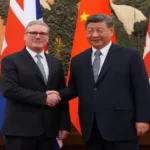As Bashar Al Assad’s regime falls, Syria embarks on a new and unpredictable journey. Hay’at Tahrir al-Sham (HTS), now a key player, faces the daunting task of keeping its ranks united while mending broken ties with other factions in the war-torn country. This crucial moment will reveal whether HTS can evolve from a militant group into a political force capable of steering Syria toward stability.
HTS’s rise marks a notable change in Syria’s power landscape. However, their success in consolidating authority and managing dissent within their coalition will be vital. The group must navigate differing ideologies and prevent the fragmentation that has affected many factions throughout Syria’s long conflict.
Equally important is the need to repair relationships with other opposition groups and forge alliances that can promote a cohesive approach to governance. The international community is observing closely, as the outcome of this transition will significantly impact regional stability and the prospects for Syria’s reconstruction.
As Syria finds itself at this pivotal juncture, the spotlight is on whether HTS can meet the demands of nation-building or if internal rifts and external challenges will lead to further chaos. The upcoming months will be crucial in determining Syria’s future direction.
With the fall of Bashar Al Assad’s regime, Syria enters a new and uncertain chapter. Hay’at Tahrir al-Sham (HTS), now positioned as a dominant force, faces the monumental challenge of maintaining unity within its ranks and repairing fractured relationships with other factions in the war-torn nation. This critical period will determine whether HTS can transition from a militant group to a political entity capable of guiding Syria toward stability.
HTS’s takeover signals a significant shift in Syria’s power dynamics. However, their ability to consolidate authority and manage dissent within their coalition will be crucial. The group must navigate ideological differences and avoid the fragmentation that has plagued many factions during Syria’s prolonged conflict.
Equally pressing is the need to mend ties with other opposition groups and build alliances that can foster a unified approach to governance. The international community is watching closely, as the success or failure of this transition will have profound implications for regional stability and the potential for Syria’s reconstruction.








